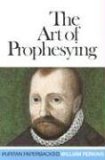God lives mouth to hand
Blessed be the LORD, the God of Israel, who with his hand has fulfilled what he promised with his mouth to David my father.
Perkins categories of hearer
I’m always trying to find these. So to save me hunting, I’ll put them somewhere.
(William Perkins, chapter 7 of The Art of Prophesying, entitled “Use and Application”)
What do I notice when I read what Perkins is actually saying (as opposed to what people imagine him to be saying)? He’s saying:
∓
The sins of the whole world II
Picking up, again on this CHN article. The Bible is quite clear that it’s a fair question. Jesus did die for the sins of the whole world. John 3:16 says, “For God so loved the world, that he gave his only Son, that whoever believes in him should not perish but have eternal life”.Just a small exegetical observation.
At last, I can buy good Kenyan again
I’m delighted to see that Steve Leighton, proprietor of HasBean coffee has finally managed to find a Kenyan good enough to stock. He drinks Kenyan at home, and basically will not buy one unless it has such a “wow” factor that he can’t get over how good it is.
Well, there have been no Kenyan coffees at HasBean for some time – nothing up to Steve’s standards. But at last we can buy Kenya Ragati from him. Sounds good, and I trust him – but I’ll still buy a 250g bag of green to see what I think for myself.
Hebrew Weak Verbs
Ros wanted a copy of the sheet I prepared whilst at college summarising the morphological changes that take place when conjugating the 9 classes of weak verb.
Here it is Ros, and anybody else who’s interested: Weak Verb Summary Sheet
"A visit required three days"
Thank you Mark Dever, in The Message of the Old Testament for this that I’ve never seen before:

Recent comments